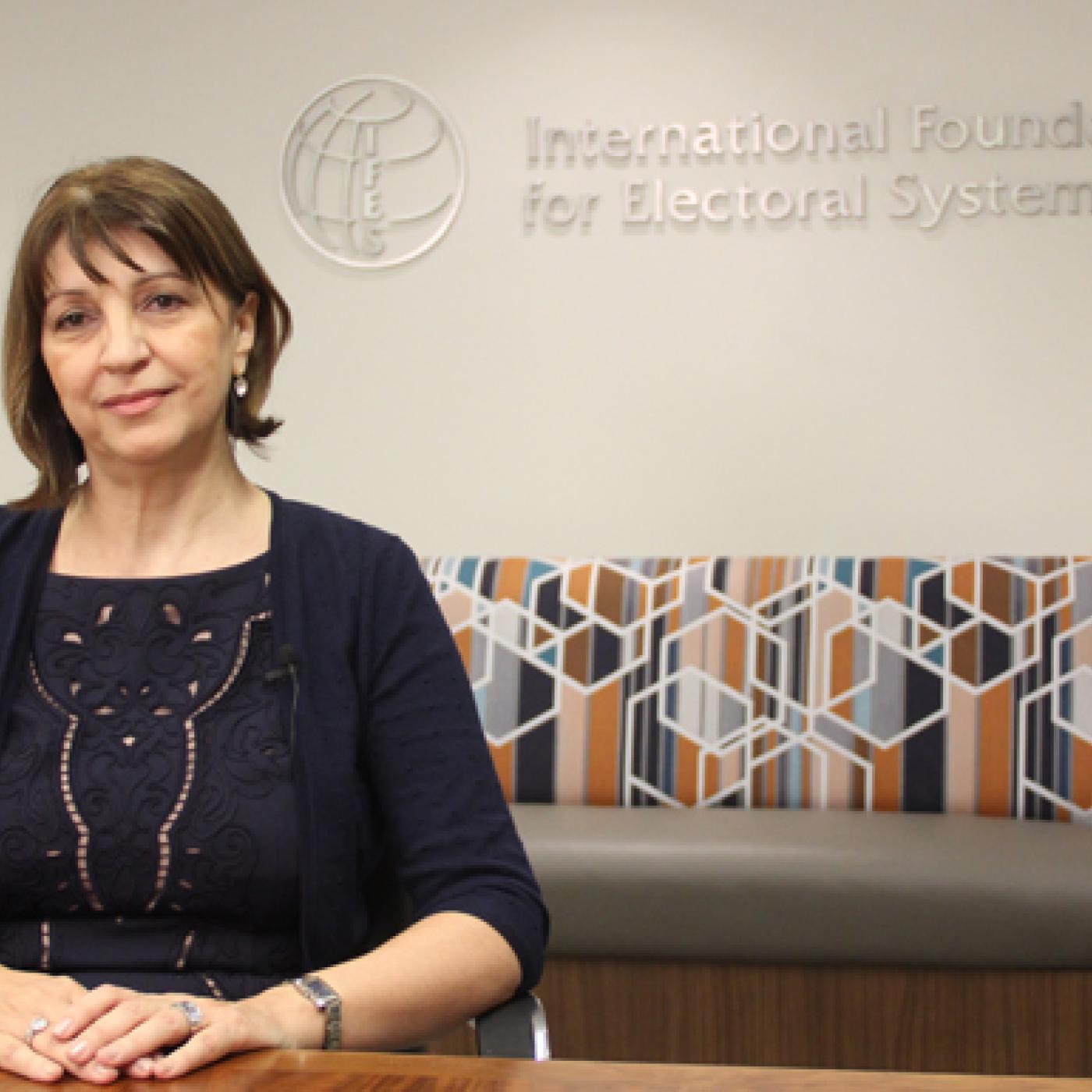Tools & Resources
Filter by
Type
Publication date
Language
Type
Publication date
Language
News & Updates
Feature
Webcast: Bosnia and Herzegovina Prepares for Important 2018 Elections
The discussion will focus on what remains to be done ahead of the elections to be held in October 2018 and how the United States can best assist Bosnia and Herzegovina in advance of these key upcoming elections. The event will be moderated by IFES Regional Director for Europe and Eurasia Dr. Beata Martin- Rozumiłowicz. Panelists include:Irena Hadžiabdić, Chairperson, Central Election Commission of Bosnia and Herzegovina, and Board Director, IFESJan Erik Surotchak, Regional Director for Europe, International Republican InstituteRobert Benjamin, Regional Director of Central and Eastern Europe, National Democratic Institute
News & Updates
Feature
Video: IFES Board Director, Irena Hadžiabdić Discusses Election Management and Gender Equality
Irena Hadžiabdić is an Election Commissioner for Bosnia and Herzegovina's Central Election Commission and an International Foundation for Electoral Systems (IFES) Board Director.
News & Updates
Feature
IFES Presents the Baxter Award to Dr. Christiana Thorpe
On November 3, 2014 the International Foundation for Electoral Systems (IFES) presented the 2014 Joe C. Baxter Award to Dr. Christiana Thorpe, Chief Electoral Commissioner and Chairman of the National Electoral Commission (NEC) of Sierra Leone.
News & Updates
Press Release
Health Crisis in West Africa Erodes Peace and Democratization Efforts
The International Foundation for Electoral Systems (IFES) is deeply concerned about the Ebola outbreak in West Africa. This health crisis has resulted in more than 1,350 reported deaths so far in a region that has been moving steadily toward peace and democratization. This outbreak of the Ebola virus has already killed more people than any other Ebola epidemic in history.
News & Updates
Interview/Speech/Testimony
Lighting the Way: A Q&A with Sierra Leone’s First Female Electoral Commissioner
Christiana Thorpe, Chief Electoral Commissioner and Chairperson of the National Electoral Commission (NEC) of Sierra Leone, is a trailblazer in election management. As her tenure comes to an end, she speaks to IFES about her legacy and hopes for Sierra Leone.
News & Updates
Interview/Speech/Testimony
UPDATED: Sierra Leone’s Peaceful Election Is Another Step Forward
On Saturday, November 17, Sierra Leone held the country’s third presidential election since the decade-long civil war came to an end in 2002. The November 17 poll was also the first election that the National Electoral Commission (NEC) has taken a primary role in organizing and executing. IFES Regional Director for Africa Almami Cyllah and IFES Chief of Party in Sierra Leone Gray Mitchell answer some questions about Election Day and its aftermath.
Publication
Report/Paper
Elections in Sierra Leone: November 17 Presidential, Parliamentary and Local Elections
The November 17 elections in Sierra Leone will be the first since the end of the civil war in 2002 that the National Electoral Commission has taken a primary role in organizing and executing. To help observers better understand the backdrop of these elections, the International Foundation for Electoral Systems (IFES) has put together a series of frequently asked questions (FAQs).
November 14, 2012
News & Updates
Feature
Democracy at Work
IFES is assisting Sierra Leonean election officials as they register candidates, educate voters and introduce new political finance regulations.
News & Updates
Feature
Sierra Leone Votes in National Elections
Presidential and Parliamentary Elections were held in Sierra Leone on August 11, 2007. National and International Election Observers were present to monitor the vote for free and fair results. Despite bad weather, citizens arrived early, and eagerly voted within the regulated precincts.
Publication
Book
Political Finance in Post-Conflict Societies
This study of political finance in post-conflict society identifies lessons learned from international donor-funded efforts to support political processes in post-conflict environments in general and the funding of political parties and campaign finance in particular. The document consists of eight case studies that seek to improve our understanding not only of the political dynamics of post-conflict situations but also of how to rally international support for holding elections and supporting democratization under such circumstances.
April 30, 2006




